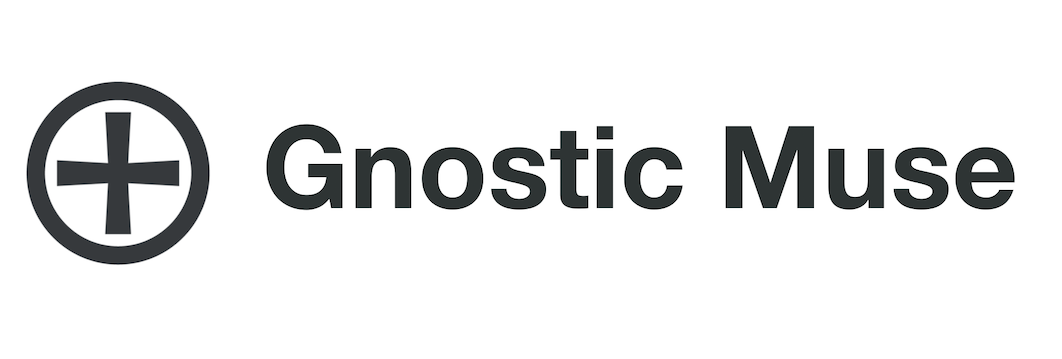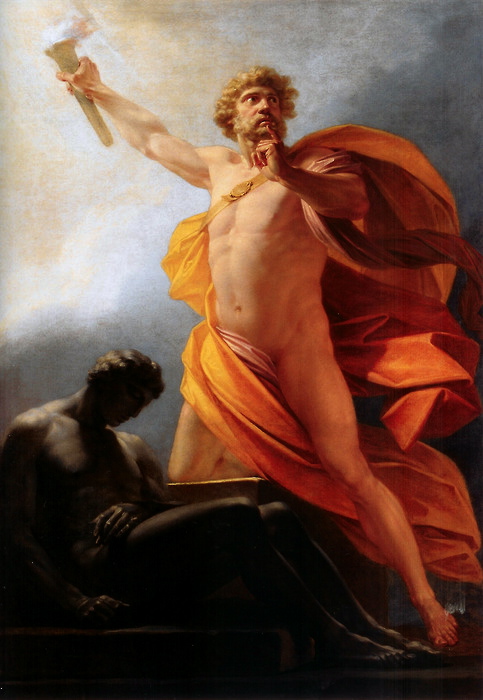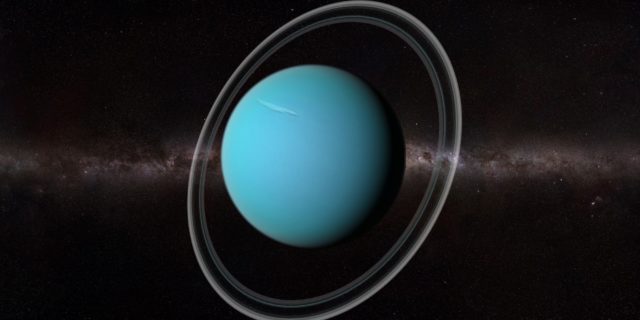Prometheus
In ancient Greek mythology the gods of Mount Olympus were preceded by a race called the Titans, with whom they engaged in ongoing battles. The gods kept certain technologies such as fire to themselves and did not share with humans.
One of the Titans called Prometheus defied the gods to bring not only fire but writing, mathematics, agriculture, medicine, and science to humankind. Prometheus was punished for this by Zeus, and made to be chained to a rock for all eternity as an eagle devours his liver.
Prometheus is very closely aligned with the astrological significance of the planet Uranus*, as a champion of human civilization while going against the gods who represent tradition, hierarchy, and authority.
The Planet Uranus
Uranus is the seventh planet from the Sun. It was discovered in modern times in the year 1781, and was the first planet to be found via telescope technology.
Uranus is an intense electric blue color, and has an unusual orbit where its poles are horizontal so it spins sideways.
The Outer Planets
Traditional astrology is based on the seven planets visible to the naked eye, and known in the eras of Greek and European antiquity. The discovery of outer planets is sometimes understood as a co-occurance with psychological changes in the collective consciousness of humanity.
The three outer planets are Uranus, Neptune and Pluto, whose discovery at the time expanded the boundaries of the known solar system.
Neptune is related with the dissolution of boundaries and structures and is associated with imagination, art, poetry, dreams, drugs, and mystical and spiritual experiences.
Pluto is related with the underworld, and deep, hidden, and often uncontrollable reserves of power. This planet’s status was confirmed shortly before the beginning of World War II and the collective entry into the nuclear age.
Uranus and the Age of Enlightenment
Uranus was discovered in the “Age of Enlightenment”, a time in Europe of innovation, discovery, and a scientific outlook that sought to move away from the superstition associated with religion. During this time modern science in the form of reductionism ruled everything from philosophy to medicine. This began a cultural separation from the holism of nature and the tradition of religion into a futuristic, man-made world based in technological advances.
Uranus is all about breaking boundaries, disrupting what is known, traditional, hierarchal, and stuck in the past. Uranus values revolutionary ideas, intellectual insight, new angles, strokes of genius, and is in fact the ruler of Aquarius, the sign of the genius.
Uranus and Revolution
Uranus is the ruling planet of the Age of Aquarius which began in the early 1960s. Ever since that time futuristic technology has become an important and unavoidable part of life, with the internet being an obvious manifestation of the values of Uranus: non-hierarchal, sharing of information via technology, disruption of entrenched structures, and facilitating all kinds of revolutions. This is why some astrologers feel that the planet Uranus should have been called Prometheus after the one who introduced technology (fire) for human advancement.
Samael Aun Weor reminds us that revolution is not merely economic, political, or technological, but is an internal psycho-sexual and spiritual process, lived through deliberate and conscious efforts. True revolution comes with a deep understanding of the nature of our energies, which have their root in sex.
The true revolutionary path is sexual transmutation which is the science of Uranus. Uranus is the planet that governs the sexual glands and hormones. In his book The Perfect Matrimony Samael Aun Weor describes the relationship of Uranus and the sexual poles within human culture:
“Uranus has a sexual cycle of eighty-four years. Uranus is the only planet which directs its two poles toward the sun. The two poles of Uranus correspond to the masculine and feminine aspects. These two phases alternate in periods of forty-two years each. The alternating stimuli of the two poles of Uranus govern all the sexual history of human evolution. Epochs in which women undress in order to display their bodies alternate with epochs in which men adorn themselves. Epochs of feminine preponderance alternate with times of intrepid gentlemen. This is the history of the ages.”
The revolutionary nature of Uranus can easily be channeled into external disruption and rebellion that will never create a better society or a better life. Or it can be that internal impetus to revolutionize our minds and souls by overcoming our own entrenched negative and self-serving structures in order to serve others and truly create a better world.
*This concept of reassigning the planet Uranus to Prometheus was first put forth by Richard Tarnas in his book Cosmos and Psyche.


